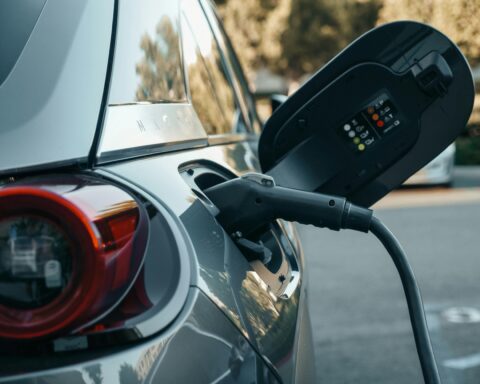This story was originally published in the Government Contracting Pipeline newsletter from Strategic Partnerships, Inc. To have the latest government contracting news stories from across the country delivered straight to your inbox, click here to subscribe.
The states of New Jersey, Connecticut, Delaware and Maryland will receive $249 million from the Environmental Protection Agency (EPA) to deploy electric vehicle (EV) charging infrastructure along the Interstate 96 traffic corridor and nearby roadways. These stations will provide reliable charging options for zero-emission medium-and heavy-duty vehicles from Connecticut to Maryland.
In addition to expanding EV charging infrastructure along one of the busiest corridors in the country, the four-state coalition will build a skilled workforce and develop support services to advance the adoption of zero-emission trucks along this corridor. The states anticipate that the EV infrastructure will prevent 18.6 million metric tons of CO2 from entering the atmosphere from 2025 to 2050.
In total, the states will develop 20 freight truck charging sites to advance corridor electrification. Deploying these charging stations will be a critical milestone toward establishing an early development, high-impact area for zero-emission freight. These infrastructure sites will include:
- 148 ports for overnight use.
- 164 fast charging ports.
- 138 ultra-fast charging ports.
Plans include implementing a workforce development program to train 400 people to build, operate and maintain heavy-duty vehicle infrastructure. This program will emphasize opportunities for low-income and disadvantaged communities, providing a career path toward high-quality employment. If successful, both the corridor infrastructure and workforce development program will serve as successful examples that can be replicated across other difficult-to-decarbonize sectors in the country.
The EPA allocated the funds from the Climate Pollution Reduction Grants (CPRG) program. The CPRG program provides financial support to eligible recipients to develop and deploy plans to reduce harmful air pollutants. Awarded projects will address climate change, reduce air pollution, support environmental justice and transition the nation to clean energy.
New Jersey is one of 25 applicants chosen to receive a portion of the recently announced $4.3 billion in CPRG funding. The most recent round of funding prioritizes reducing GHG emissions in the agriculture and working lands, transportation, commercial and residential buildings, industry, waste and materials management and electric power sectors.
Photo by Quintin Gellar













